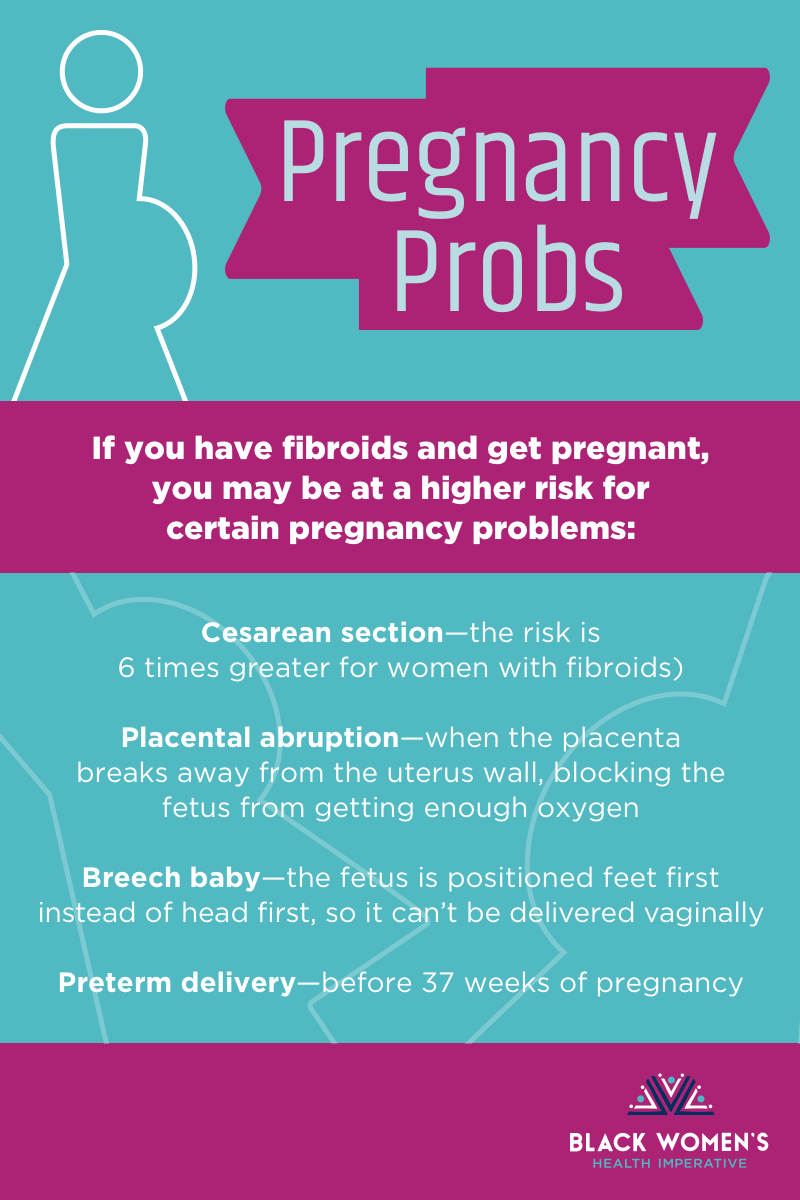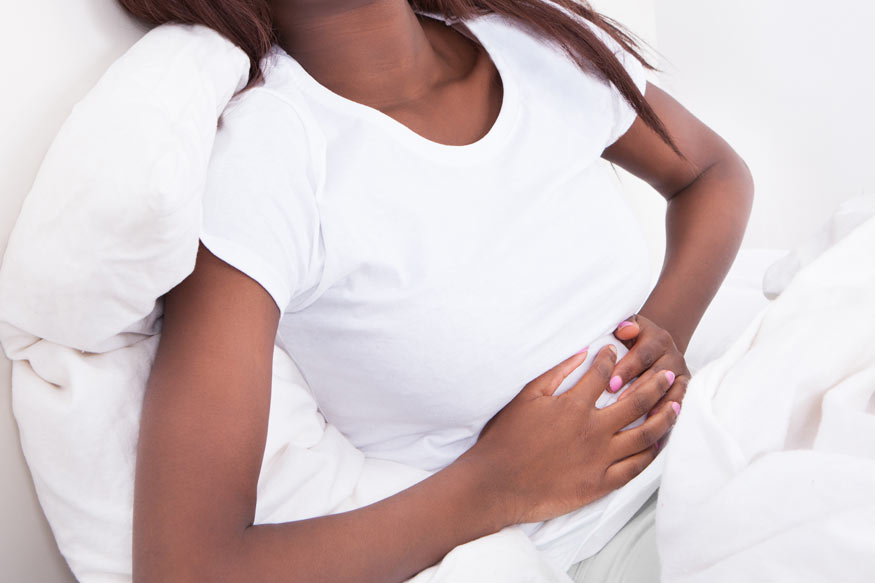You’ve just been told that you have uterine fibroids. But what does that mean? What is going on?
Fibroids are growths in your uterus (the babymaker). They range in size from as small as an apple seed to as large as a grapefruit.
You might hear fibroids referred to as “tumors,” but don’t panic—-even though the word “tumor” is often associated with the Big C, these tumors are almost always benign (not cancerous).
Okay, now that we’ve gotten the scary stuff out of the way. Let’s move on to the truth about fibroids.
Black Women And Fibroids
Fibroids are a common femailment. (Get it?)
Anywhere between 20 to 80% of women will develop fibroids by the time they turn 50. And although they can affect all women, Black women are about 3 times more likely than white women to develop fibroids, and they tend to develop them at a younger age than other women.
Although most fibroids don’t cause symptoms, Black women are also 2 to 3 times more likely to have symptoms, including:
- Heavy bleeding during your period
- Long-lasting periods
- Pelvic cramping or pain with your period
- Bleeding between periods
- Feeling like you constantly have to pee
- Pressure or fullness in your lower belly
- Pain during sex
- Bloating
And this isn’t exactly a symptom, but some women develop anxiety disorders by constantly worrying about bleeding through clothing or on mattresses.
Why Is This A Black Women Problem?
The stats are clear, but the reasons are not. We still don’t know exactly what causes fibroids, so it’s hard to pinpoint why it affects Black women more.
However, there are a few possibilities. One of the most recent guesses comes from a study linking hair relaxers (commonly used by Black women) to fibroid development.
And then, there’s the fact that fibroids tend to run in families. So, if more Black women already have fibroids, and they pass them onto their daughters, it makes sense that the number of Black women with fibroids will continue to grow.
Black women may also feel the impact of certain symptoms, like bloating. Bloating can make you feel, and even look, like you’ve gained weight—even if you haven’t.
And according to a 2013 study, compared to other women, Black women are more likely to feel self-conscious about weight gain, and the size and appearance of their stomach.
’Broids And Babymaking
Since fibroids live in the oven (uterus), it’s not surprising that they can cause trouble with the baking (babymaking).
The exact reason is unclear, but fibroids can cause infertility in some women. And, about 5 to 10% of infertile women have at least one fibroid.
Why Is This A Black Women Problem?
First, let’s talk about the babymaking issue.
It’s not necessarily that Black women with fibroids have a higher risk of infertility than white women with fibroids. However, race can still make a difference in starting (or growing) a family.
Black women tend to get fibroids earlier than other women. While many women develop fibroids in their 30s or later, Black women often develop them in their late 20s—right in the prime time of trying to get pregnant.
Infertility can be difficult for any woman to go through. But the stigma about infertility in the Black community can make it especially hard for Black women to be open about what they’re going through, or to seek help.
Black women are also less likely to use fertilization treatments (like in vitro fertilization) for reasons ranging from the expensive cost to not being able to get time off work for treatments, to trouble finding the right physician.
We also have the higher risk of problems in pregnancy, like needing a Cesarean-section or having placental abruption. These are already higher in Black women, so it’s no fun to throw in the fibroids.

Farewell, Fibroids—Maybe
If your fibroids aren’t causing any symptoms, you might not need treatment. If fibroids are causing pain—but it’s mild—you may be able to take some over-the-counter painkillers as needed, and call it a day.
When fibroids do start causing symptoms or interfering with your daily life, it may be time to start other treatments.
Some of the most common treatments include:
- Birth control pills to prevent heavy bleeding
- Medication to shrink fibroids
- Myomectomy to remove fibroids without removing healthy tissue in the uterus (good if you want to get pregnant later)
- Hysterectomy to remove the uterus (only way to guarantee the fibroids are gone, but makes it impossible to get pregnant)
- Endometrial ablation to remove or destroy the lining of the uterus, in order to control very heavy bleeding (also makes it impossible to get pregnant)
- Uterine Fibroid Embolization (UFE), or Uterine Artery Embolization (UAE) to shrink the fibroids
- Myolysis to destroy the fibroids
- Holistic treatments to shrink fibroids or lessen symptoms
Why Is This A Black Women Problem?
This is a simple one.
Treatment can work. It can shrink fibroids or remove them completely. It can relieve symptoms. But Black women are much more hesitant to actually get treatment.
Black women tend to wait over a year longer than white women before getting treatment. They also tend to report that fibroids interfere with daily life and social activities more than white women.
This may be partly because Black women are often more concerned about the effects of treatments than white women. They’re more likely to be nervous about post-op pain, scarring, and the permanence of certain treatments.
There is also a historical component. For decades, Black women in the U.S. underwent forced sterilizations. The government coerced them into having procedures which would leave them unable to bear children, often without their full knowledge or consent.
While forced sterilization is no longer legal in the U.S., its legacy remains, making it hard for some Black women to trust physicians and the medical system.
This is completely understandable—but building that trust in the medical system can you help you get treatment, so you can overcome conditions like fibroids.
Guess what? Fibroids don’t have to control your life. Talk to your physician ASAP if you’re concerned about fibroids.


